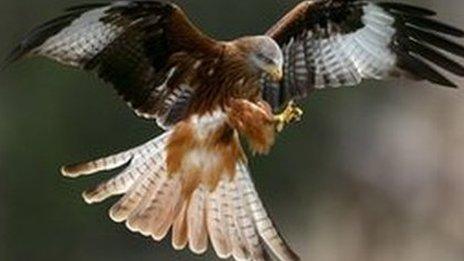Probe into poisoning of 16 birds no longer active
- Published
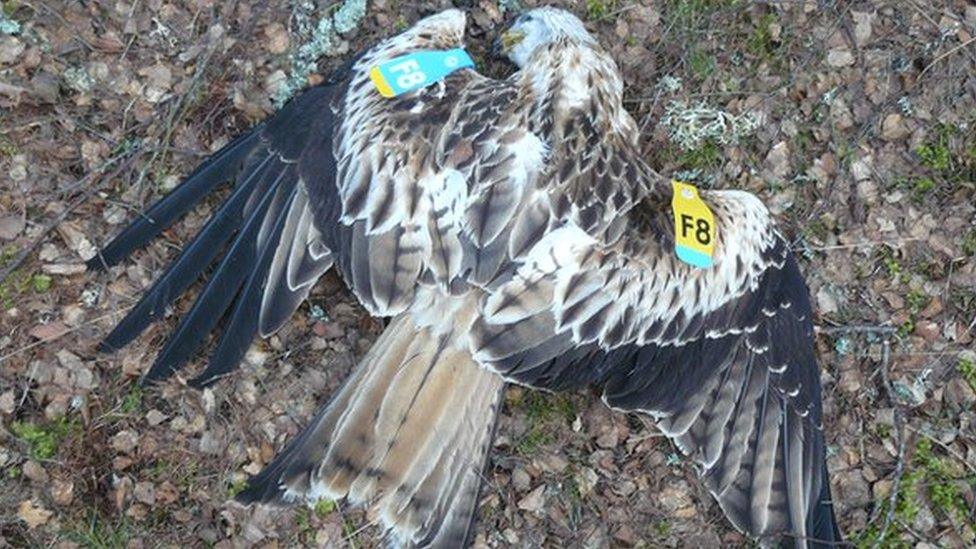
Red kites made up the majority of the 16 birds of prey that were poisoned
A police investigation into the deaths of 12 red kites and four buzzards in the Highlands in 2014 is now no longer active.
Police Scotland said this was because of a three-year time bar on the offences that were committed in the Conon Bridge area.
The birds were killed by pesticides banned under UK-wide legislation.
Police Scotland and bird conservation charity RSPB Scotland said they were disappointed no-one had been charged.
The deaths of so many birds of prey was condemned by wildlife charities, the police and politicians at the time.
Offences under the Wildlife and Countryside Act 1981 must be prosecuted within three years of a report of a crime being made.
Divisional Commander Ch Supt Philip Macrae said: "Every line of inquiry has been explored as part of our investigation into the deaths of these birds of prey, including large scale searches and a detailed investigation by CID and wildlife officers.
"We liaised closely with a number of partners including the National Farmers Union, RSPB and the Scottish SPCA as well as the Crown Office and Procurator Fiscal Service.
"The inquiry has been regularly reviewed for any new lines of inquiry and it is therefore very disappointing that there has been insufficient evidence to progress this case any further."
'Appalling incident'
Det Insp Scott Macdonald, who led the inquiry, said: "I remain convinced, based on the advice of partners involved in the investigation, that the bait was laid for illegal pest control and not specifically to target the birds of prey, however they became the unfortunate victims of this illegal act.
"Using illegal pesticides is wholly unacceptable; it poses an indiscriminate danger to humans and wildlife alike."
The officer said that although the case was no longer active, Police Scotland continued to take the use of illegal pesticides seriously.
Duncan Orr-Ewing, head of species and land management for RSPB Scotland, said: "This appalling incident should act as a warning to anybody contemplating using illegal poisons in the countryside as to the possible risks to red kites and other vulnerable wildlife."
Shortly after the discovery of the dead birds, a reward of £10,000 was offered for information on the poisonings.
- Published3 April 2014
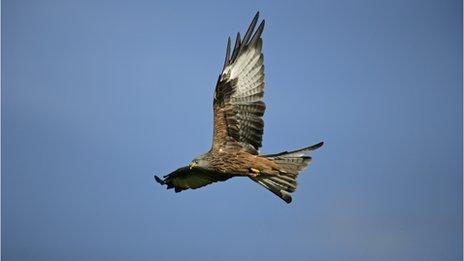
- Published2 April 2014
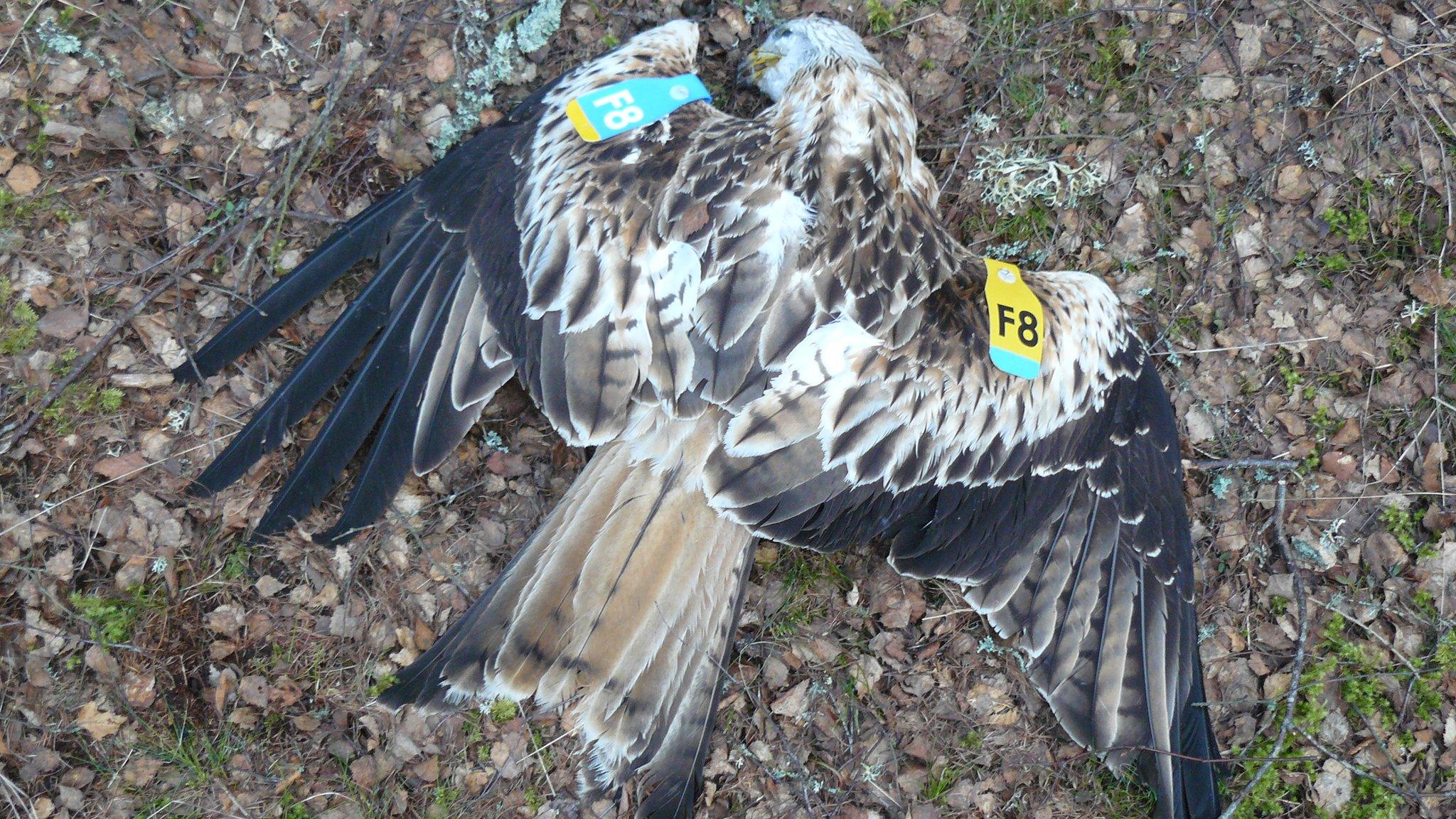
- Published1 April 2014
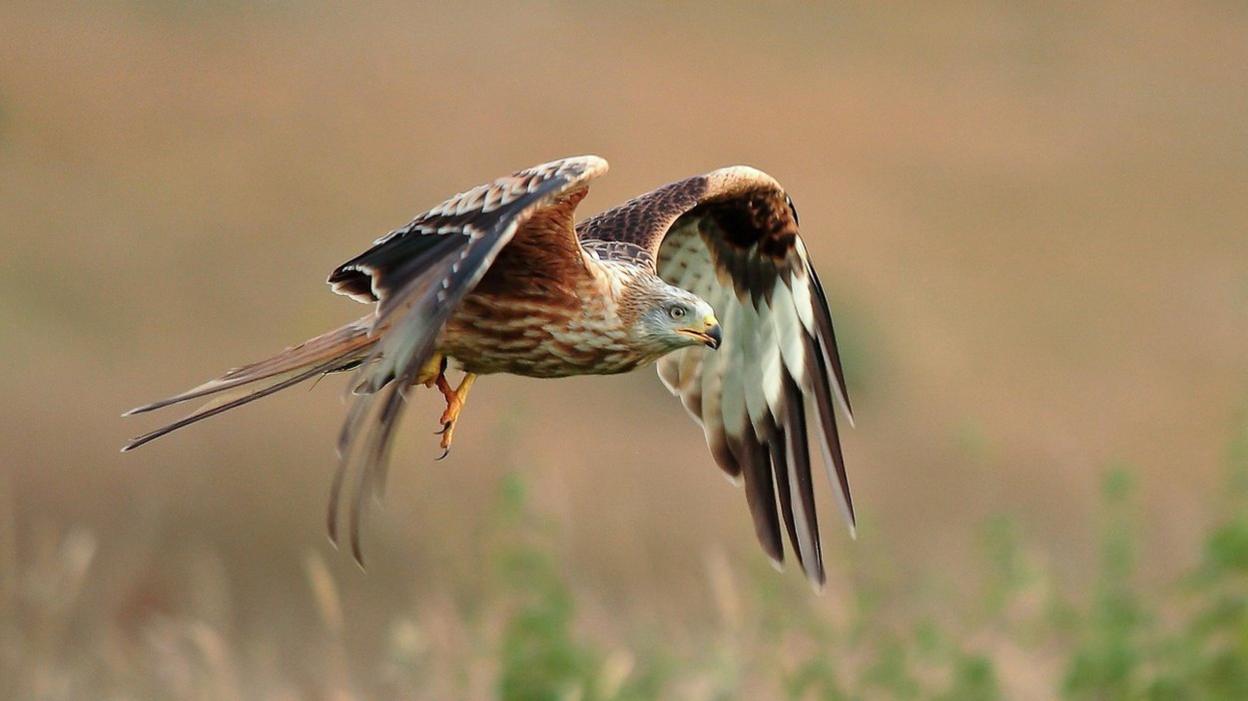
- Published28 March 2014
